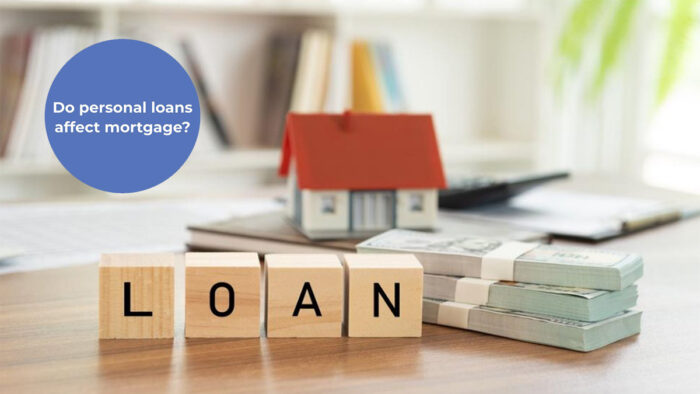Most people often ask if personal loans affect getting a mortgage. Personal loans are types of loans that allow borrowers a large amount of money to meet a wide variety of needs. It can be used to pay off weddings, home improvements, and even medical bills. While taking this loan seems like a good idea, personal loans can affect your mortgage application.

If you plan on purchasing a home in the next few years, taking a personal loan can reduce your chances of borrowing a large amount of money for a home, and it can affect your credit score. How personal loans affect your credit, however, depends on how well you manage your loan. Before getting a mortgage, it is important to be aware of how a personal loan will affect or affect your mortgage.
How Personal Loan Works
Personal loans are types of loans that allow borrowers to access up to a large amount of money for several expenses. It comes in two different types, which are secured and unsecured loans. Secured loans require borrowers to provide collateral, while unsecured loans require no collateral from borrowers.
Personal loans allow borrowers to use their loan funds. However, personal loans and unsecured loans charge higher interest rates than secured loans because they require no collateral.
Do Personal Loans Affect Getting a Mortgage?
Taking personal loans before buying a house can affect your mortgage application. Any loan you have stated on your credit history affects your chances of getting a mortgage loan. When determining a mortgage loan, lenders often look into two main factors in a personal loan. These factors include how well your loan has been managed and how your debt-to-income ratio is affected. Here are reasons why these factors are important:
• Payment record
Paying off your monthly loan on time is an important factor to be approved for any type of loan, including mortgage loans. Mortgage loans are generally considered long-term loans for both borrowers and their finances. Missing a payment on personal loans may reduce your chances of mortgage qualification or even higher rates if you do qualify.
• Debt-to-income Ratio
Lenders often look into your back-end debt-to-income ratio when determining loan amounts borrowers qualify to take. The debt-to-income ratio is the total monthly loan repayment divided by monthly gross income. In cases where your back-end debt-to-income ratio is low, the personal loan payment may not show any difference.
How Do Personal Loans Affect Getting a Mortgage?
If in the last six years you have taken a personal loan, it will be stated in your credit history. This information will be accessed by lenders when determining your qualification for mortgage loans. You do not need to be debt-free to apply for a mortgage, but the mortgage lender may not offer a loan if:
- The borrower has applied for various forms of credit in a short time.
- The borrower’s monthly loan repayment is summed up to a notable portion of their income.
- The borrower has taken a new line of credit almost immediately before the mortgage application.
- There are any missed payments.
If you have taken a personal loan that is small to your income and you have been repaying on time for over three months, it may not affect your mortgage qualification.
What If I’m Still Paying Off a Personal Loan?
If you have taken a personal loan before considering a mortgage loan, the best step to take is to continuously pay monthly loan payments on time. In cases where you are close to paying off the rest of the loan and you can afford it, paying off the loan can increase your chances of getting your desired mortgage loan amount.
How to Reduce the Impact of a Personal Loan on a Mortgage
While personal loans can affect your mortgage application, there are several ways to reduce the impact personal loans have on your mortgage. These ways include:
- Making loan payments on time.
- Paying off as much debt as you can before opting for a personal loan.
- Reviewing your credit history.
- Limiting the number of credits taken before applying for a mortgage.
- Reorganizing high-interest loans.
Through these processes, your mortgage will not be affected by personal loans taken before the mortgage application.
Can I Pay Off My Mortgage Using a Personal Loan?
Even though you get a lender willing to allow you to take loans to pay off your mortgage, you may end up in more debt than you should. Personal loans tend to have higher interest rates each month, unlike mortgages. Also, you may be faced with fees for paying off your mortgage before the final date.


